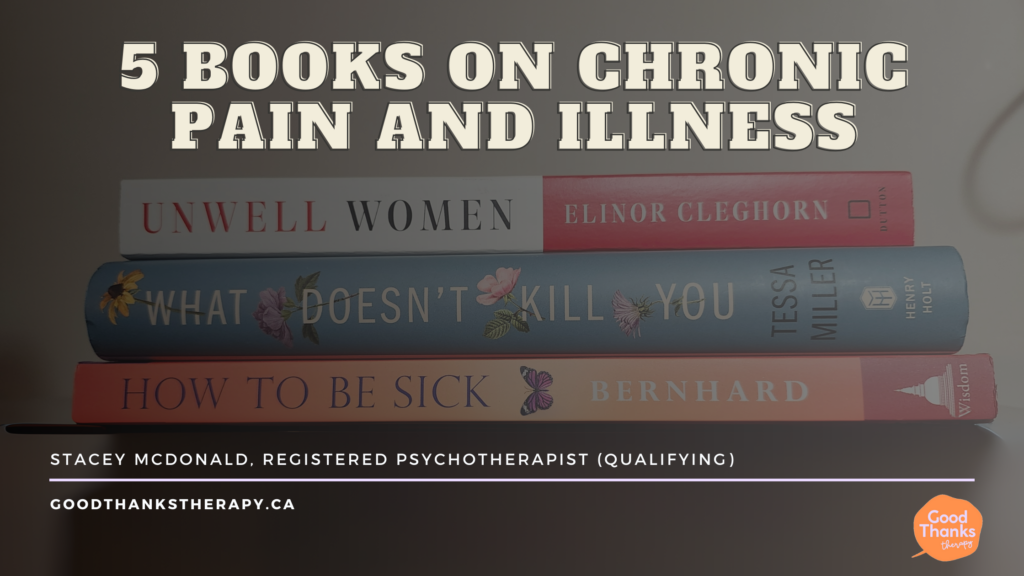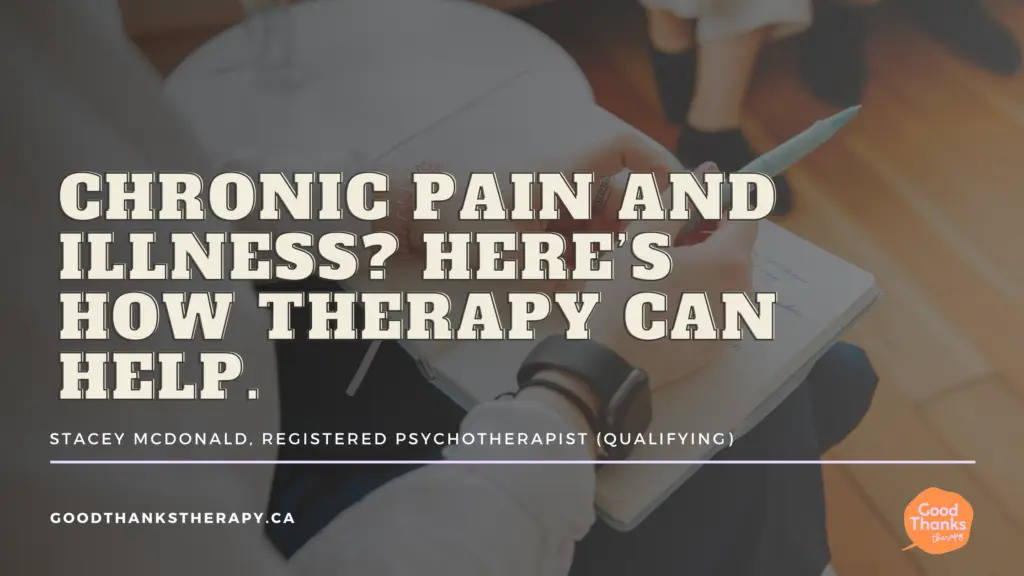5 Books on Chronic Illness | Books on Chronic Pain
As someone who lives with chronic pain and illness, I know firsthand just how isolating it can be. However, statistics show that chronic pain/illness is something that many of us face. In Canada, approximately 40–70% of adults live with one or more chronic health conditions, and one in five people in their lifetime will live with chronic pain.
The experience of living with chronic pain and illness can vary immensely, and this can make it difficult to explain to others, especially those without lived experience themselves. This furthers those feelings of loneliness, which is why it can be so important for those living with chronic conditions to find community.
One accessible way to find community is through hearing others’ stories. This can be through reading, social media, support groups, peers, and TV or movies. Not only do these sources allow us to connect with others with similar experiences to our own, but they can also help our loved ones learn more about our experiences.
Here are five great books on chronic pain and illness:
Content warning: Please note that these books may go into detail about trauma, medical experiences, suicidality, and/or self-harm. Please assess your capacity to take on that information before reading.
What Doesn’t Kill You: A Life with Chronic Illness—Lessons from a Body in Revolt by Tessa Miller
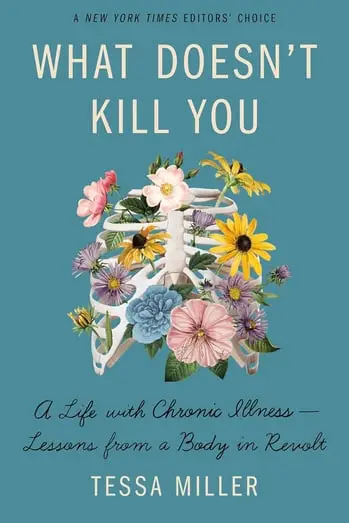
Tessa Miller tells her story of living with inflammatory bowel disease (IBD) in a book that’s part autobiography and part investigative journalism. She provides an honest and raw account of what it’s like to navigate living with a chronic illness. This story will hit home for anyone who’s had to face the gaslighting, bureaucracy, and dismissiveness of doctors and the medical system in general when they’re fighting for a diagnosis, appropriate treatment, and relief. A journalist by trade, Tessa compliments her experiences with history, science, and resources that give the reader a realistic sense of hope.
How to Be Sick by Toni Bernhard
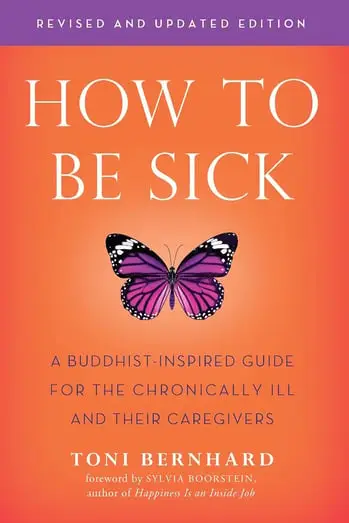
Living with Chronic Fatigue Syndrome (CFS), Toni Bernhard provides a realistic look at just how severe and limiting life with a chronic illness can be. Despite her deep struggle with managing her condition, Toni was able to find a sense of purpose and acceptance that has allowed her to live her life as fully as possible. This book provides techniques that highlight the importance of mindset when living with a chronic condition. While Toni’s approach is a spiritual one based in Buddhism, it is quite accessible to all. As a therapist who uses Acceptance and Commitment Therapy (ACT) often, I appreciated Toni’s approach to “acceptance” and purpose, which mirror the mindset encouraged in ACT and the work we do with values.
Unwell Women: Misdiagnosis and Myth in a Man-Made World by Elinor Cleghorn
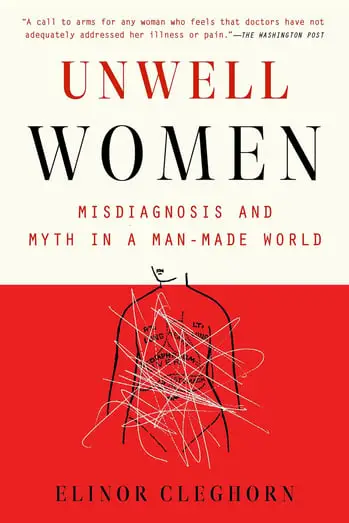
It seems like every other week we are finding out more ways the medical system has not been set up to properly treat and assess women. In fact, we now know that women are typically diagnosed years later than men when it comes to chronic diseases like cancer, diabetes, and autoimmune conditions. Unwell Women gives us a rundown of this history of neglect for women in the medical system and what that means for us today. Elinor draws from her own experience with autoimmune disease and other women’s stories of chronic health conditions to shed light on the dismissive nature and mistreatment women can face when they’re looking for answers about their own health. This is a great read for women and gender minorities who have had to spend years fighting and advocating for their needs or who were gaslit into believing it was “all in their heads.”
The Invisible Kingdom: Reimagining Chronic Illness, by Meghan O’Rourke
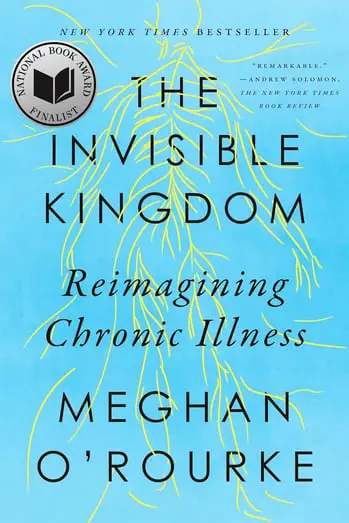
Meghan shares her story of living with a hard-to-diagnose invisible illness in this part autobiography, part in-depth expose on the history and research of hard-to-understand medical conditions. Her story outlines the common experience for many struggling with chronic conditions: the constant medical appointments, tests, and treatments that go nowhere and leave doctors stumped. Meghan provides a vulnerable and raw view of the difficult and often isolating experiences of chronic health conditions that aren’t always talked about.
Disability Visibility: 17 First-Person Stories for Today, Edited by Alice Wong
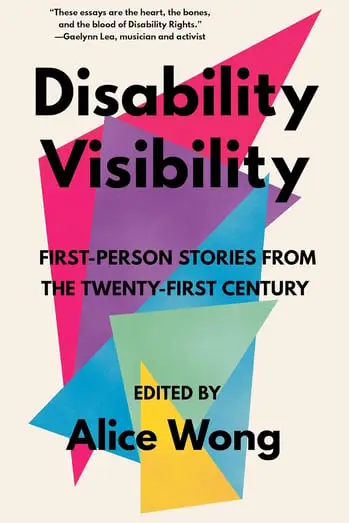
The literature on disability has been notoriously lacking, but we’re beginning to see a lot more voices rise up in recent years. Disability Visibility is one example of that—a collection of essays from disabled writers outlining their own lived experience. This collection offers a look at the complex nature of living with a disability—the joy, grief, adaptability, and resilience. A great source of validation, hope, and depth to the stories of those living with disabilities, in stark contrast to a lot of what we still see in the media.
Sometimes it can be hard to tell our own stories or feel understood in our experiences living with chronic pain or illness. Getting to hear others stories can help us feel more connected and understood, and it can help us share some of the more difficult-to-explain parts of our lives with our loved ones.
If you’re looking for a therapist in Ontario that understands chronic pain and illness, Stacey McDonald RP (Qualifying) has lived experience of chronic conditions and has a passion for supporting clients living with these issues themselves. We offer virtual therapy across Ontario and you can book a FREE 20 Minute Consult!

